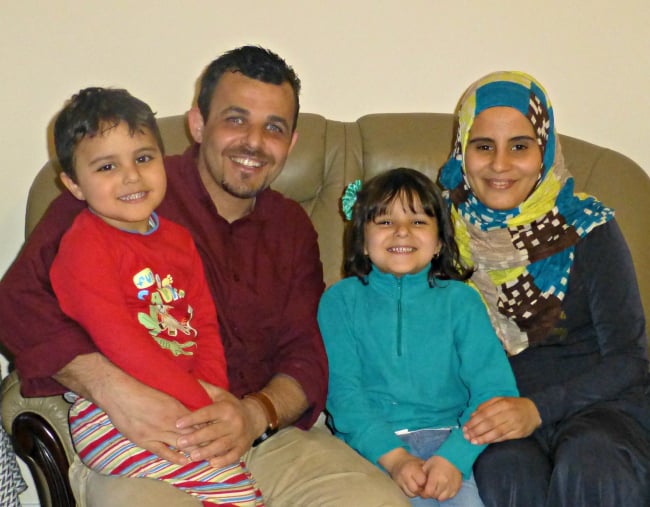
I wasn’t sure what to expect as I took the train from Paddington Station in London to the small regional town of Ottery St Mary in Devon, around 250 kilometres away.
I was travelling to meet a group of compassionate Brits from all walks of life who had one thing in common – an energetic desire to do something tangible to respond to needs of Syrian refugees, millions of whom have been displaced by years of brutal conflict.
The UK’s new community refugee sponsorship scheme, which was co-designed by the UK government and interested community groups, is inspired by a Canadian program which has run for about 40 years and has resettled more than 300,000 refugees.
In the UK members of the community can now sponsor the resettlement of refugees referred by the UN High Commissioner for Refugees. To act as sponsors, a community group must raise £9,000 (AUD $16,000) and commit to providing two years of accommodation and practical assistance to the family upon their arrival in Britain.
The volunteers I met comprised a couple of teachers, a retired nurse, a dentist, a lawyer, a policeman, a church leader and various others who have rallied together to provide a comprehensive network of support to one family. In a community of just 7,000 people, they had managed to find a resident who spoke Arabic and was willing to act as interpreter while the Syrian family learns English.
Hani Abdile is a refugee who escaped from Somalia to Australia. Watch her incredible story below. Post continues after video.


Top Comments
Some of them will be terrorists - thats impossible to stop. And how do you vet there unborn children/grandchildren?
Refugee programs need an open and honest debate.
If Australians want to sponsor refugees and pay their way, but it would have to be on the condition there are no Centerlink benefits, no family reunions, otherwise the refugee programme would be a shambles.
You do understand that Australia is signatory to the international 1951 Refugee Convention?
I've read it.
It specifically says welfare should come from non-governmental bodies, if possible.
I have no issues with immediate families coming together, but i get what Susie is saying if she is referring to extended families.
Australia has had a very generous refugee programme since World War Two, so there is little reason to change it now. As for the 1951 Refugee Convention, it was not meant to be a Phileas Fogg Around the World in 80days scenario, where refugees country shop as is what is happening in Europe and to an extent here in Australia. What the article didn't mention is how the UK is drowning with the sudden influx of migrants. Schools, hospitals, housing are unable to cope and nowhere does it state who picks up the medical and schooling expenses, or what happens if they are unable to find jobs.